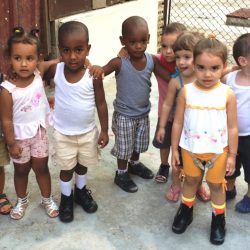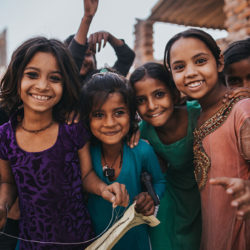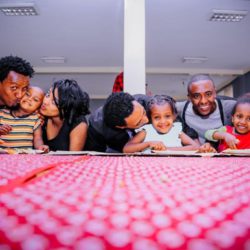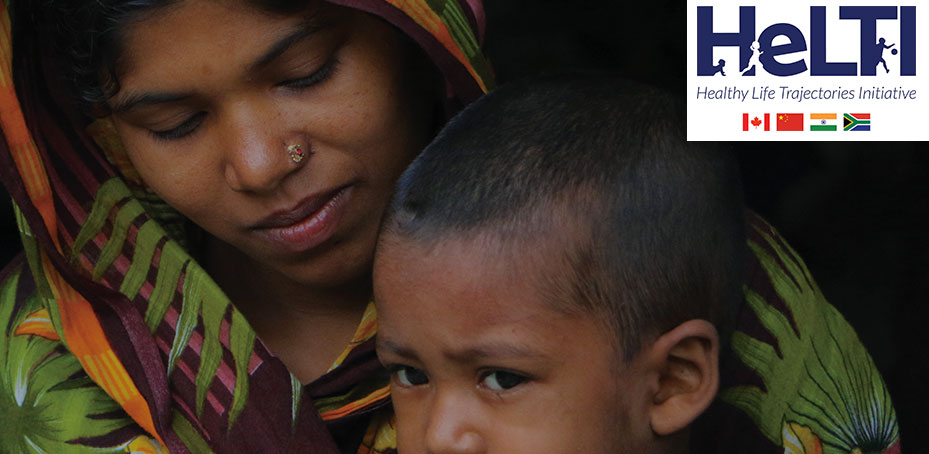
AHD is committed to a new way of advancing knowledge in the field of early child development. Our researchers come together across academic boundaries and apply a holistic perspective to the most pressing questions about optimal child development. This trans-disciplinary approach to research matches our commitment to move the knowledge beyond the academic silos, through policy and practice to affect positive outcomes in the lives of children and their families.
The program represents a partnership between CIHR, the South African MRC, the Department of Biotechnology, India and the National Natural Science Foundation of China. The program was developed to address the increasing burden of non-communicable diseases (i.e. obesity, diabetes, cardiovascular disease and poor mental health) around the world. There are four separate but harmonized projects that are commencing in Soweto (South Africa), Mysore (India), Shanghai (China), and across Canada.
All projects are focused towards developing evidence-based interventions that span from pre-conception across pregnancy and into the postnatal period with a goal improving maternal, infant and child health.
The studies are designed as 10-year projects including 12-18 months set up and formative work, enrolment with three intervention phases spanning about 8 years.
All research teams, apart from the Canadian team, are made up of combined teams of researchers in the study country and in Canada. All teams comprise trial specialists, epidemiologists, basic scientists, clinician-scientists and policy researchers who bring a tremendous level of expertise to each project.
Cuba is an example where modest infrastructure investments, combined with a well-developed public health strategy has generated health status measures comparable with industrialized countries. Focusing on the primary care level through the polyclinics as an important core and with the family doctor and nurse teams, Cuba has many areas of success including: reduction of infant and maternal mortality, control of infectious diseases, progress in control of chronic diseases, and establishment of a research and biotechnology industry, among others.
The health and economic burden of non-communicable diseases (NCDs) is increasing rapidly globally and falls disproportionally on low- and middle-income countries (LMICs). In India, an estimated 65 million people have diabetes and a further 77 million are pre-diabetic. Unchecked, the population with diabetes is expected to reach 109 million by 2035.
The health, societal and economic burden of non-communicable diseases (N&Ds) is significant, increasing, and propagated by early life environments (undernutrition/stress) and later life adiposity, decreasing physical activity, increasing sedentary behaviour, poor dietary diversity, and intergenerational factors. The N&D burden falls heavily on low- and middle-income countries and this pattern is predicted to intensify dramatically in the near future.
IMMIGRANTS AND REFUGEE ECD PROJECT
The study aims at (1) supporting the world’s most marginalized and at-risk populations of children to thrive and reach their full potential and (2) providing a sustainable platform for expanding our understanding of vulnerability and resilience in the early years of development.
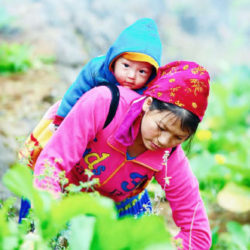
Exploring barriers to accessing maternal health and family planning services in ethnic minority communities in Vietnam

Pregnancy and early childhood represent critical developmental epochs that impact health throughout our lives. Globally 536,000 women die of pregnancy-related causes each year, and about 10 million suffer complications related to pregnancy or childbirth. Over 13 million babies are born prematurely and 3 million are stillborn annually.

